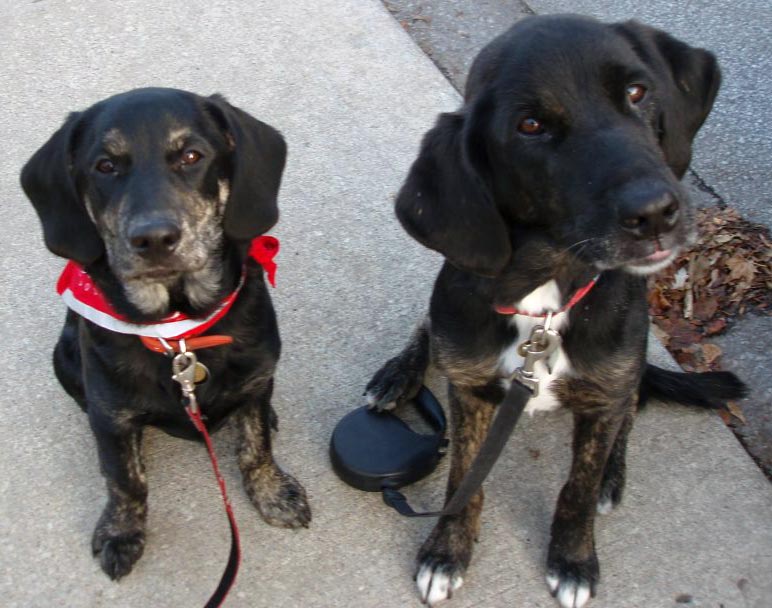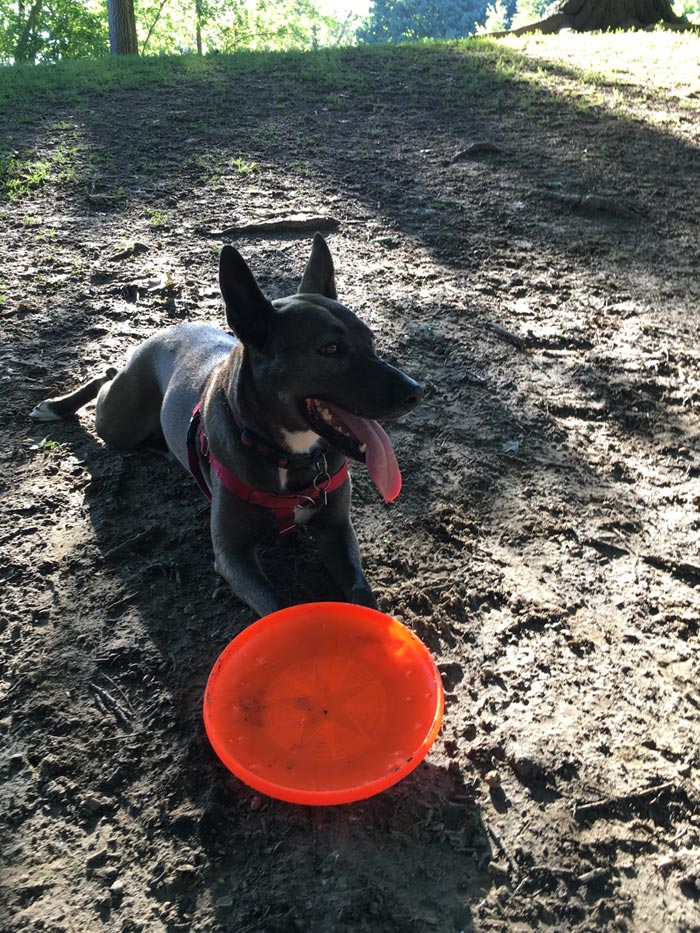Family patter(ns) - how we talk to our dogs

Mack Crack and Foo, good looking in a subtle way, and always a sceptical audience.
My mother would be the first to tell you that I am bright but not brilliant. I call her the Queen of the Qualified Compliment. And when I talk to the dogs, I say things like "You're good looking dogs, in a subtle sort of way," or "You're the smartest dogs in the world. Or maybe in Toronto." I detect the queen's influence. I wouldn't want to over-inflate those doggy egos.
I'm not sure if family re-runs are what's going on when my friends Maureen and Amy talk to their dogs, George and Chelsea. I hope not. The gals order pizza, and when George approaches the dinner table they say, "George, you don't like pepperoni." George is a black lab mix, so this strikes me as unlikely.
Or they assure the dogs, "We'll be back in a minute," when they are leaving for hours.
"So, you lie to your dogs," I say, when Maureen reports this. Maureen nods happily. "Dogs don't have a concept of time anyway," she offers. Ha! I only use 'Back in a minute' when I'm going to the laundry room, and I'm sure the dogs get what I mean -- probably because there's no dog crating involved. But if George and Chelsea are anything to go by, dogs are not destroyed by our lying, cheating, pizza-hogging ways.
I ask my trainer (ostensibly my dogs' trainer) what kinds of things he says to his dog, Mae, that might be considered a bit unusual. "Bad dog!" he says.
"But you say it in a nice, chirpy voice?" I ask. Sean uses only positive reinforcement.
"No. A stern voice: 'Bad dog'!" he intones. I am confused.
"Then I give her a lot of cookies. That way, if anyone calls her a bad dog, or I lose my cool, she'll still think she's good and about to get a cookie." Which, undoubtedly, she is. Mae is castigation-proof: With Sean, it's all good, all the time.

Mae: It's all good all the time. Photo by Sean Howard http://www.seanhoward.ca
In the realm of praise and blame, my dogs get to listen to a lot of my self-criticisms. "I'm a nutbar, but you already know that," I tell them. Sometimes I curse myself as a loser, or suggest that life is not worth living. The dogs are unimpressed. Criticizing myself to my dogs is a good substitute for saying affirmations, which never worked for me anyway. Affirmations, according to research, have to be believed by the sayer for them to work (big surprise). Instead, state your self-criticisms aloud, to indifferent and skeptical dogs. It's a much better esteem booster.
I'm not the only one experiencing therapeutic side effects from dialogues with the dogs. Whenever George does something bad, like sticking her (George is a female) head in the dishwasher, Amy exclaims "Who raised you, anyway?!?" Both Amy and George know the answer: her dreadful ex.
"This must be your father's [also a female] influence," says Amy, her tone both accusing and sympathetic. George is the victim of bad parenting; thank God Amy got them both out of that relationship. Still, I think George may be scarred for life. She's a very whiny dog.
Despite the family replays, I feel a sense of liberation when I chat with my dogs. I can say whatever I want, safe in the knowledge that they won't need years of therapy. "You could lose your nuts at any time, you know," I tell the unneutered McCracken. I'm not worried about his Oedipal Complex. Whenever McCracken's little red rocket makes an appearance, accompanied by a look of confusion on his face, I tell him: "You're baffled by your desires. Everybody is. Welcome to life, bud."
Usually my patter is not so philosophical. Most often I say, "No, you can't have another treat." Pause. "Oh, all right, have another treat." They get what I mean. And they get a treat.
Comments: To avoid registering with Disqus, click on join the discussion, then in the name field at the bottom of the form check "I'd rather post as a guest." A name and email address are still required.